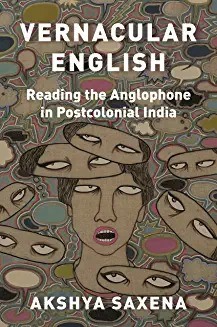Akshya Saxena in LA Review of Books:
 AS SOMEONE WHO grew up in India in the early 2000s, after the once-colonized country had opened itself to the global economy, one thing was clear to me. Aspiration and English were synonymous. Both were essential. This lesson was drilled into me at my missionary-run English-medium high school in New Delhi. Whether we dreamed of becoming doctors or engineers or corporate hotshots, we were repeatedly told that we needed to have English. Students were penalized for speaking in any language other than English, and our pronunciations were disciplined in preparation for roles no one doubted we would take on. Away from the institutional ear, my peers and I still cherished our other languages, to varying degrees. But, for the most part, we learned to joke, dream, rebel, and obey in English.
AS SOMEONE WHO grew up in India in the early 2000s, after the once-colonized country had opened itself to the global economy, one thing was clear to me. Aspiration and English were synonymous. Both were essential. This lesson was drilled into me at my missionary-run English-medium high school in New Delhi. Whether we dreamed of becoming doctors or engineers or corporate hotshots, we were repeatedly told that we needed to have English. Students were penalized for speaking in any language other than English, and our pronunciations were disciplined in preparation for roles no one doubted we would take on. Away from the institutional ear, my peers and I still cherished our other languages, to varying degrees. But, for the most part, we learned to joke, dream, rebel, and obey in English.
Everyone agreed that English was A Good Thing to Have. I heard similar ideas about the importance of English at home as well. My father, raising daughters in a country that did not value women, encouraged my sister and me to speak in English, and beamed with pride when we did. This expectation felt awkward — absurd, even — because English was not a language the other women in our family shared.
More here.
